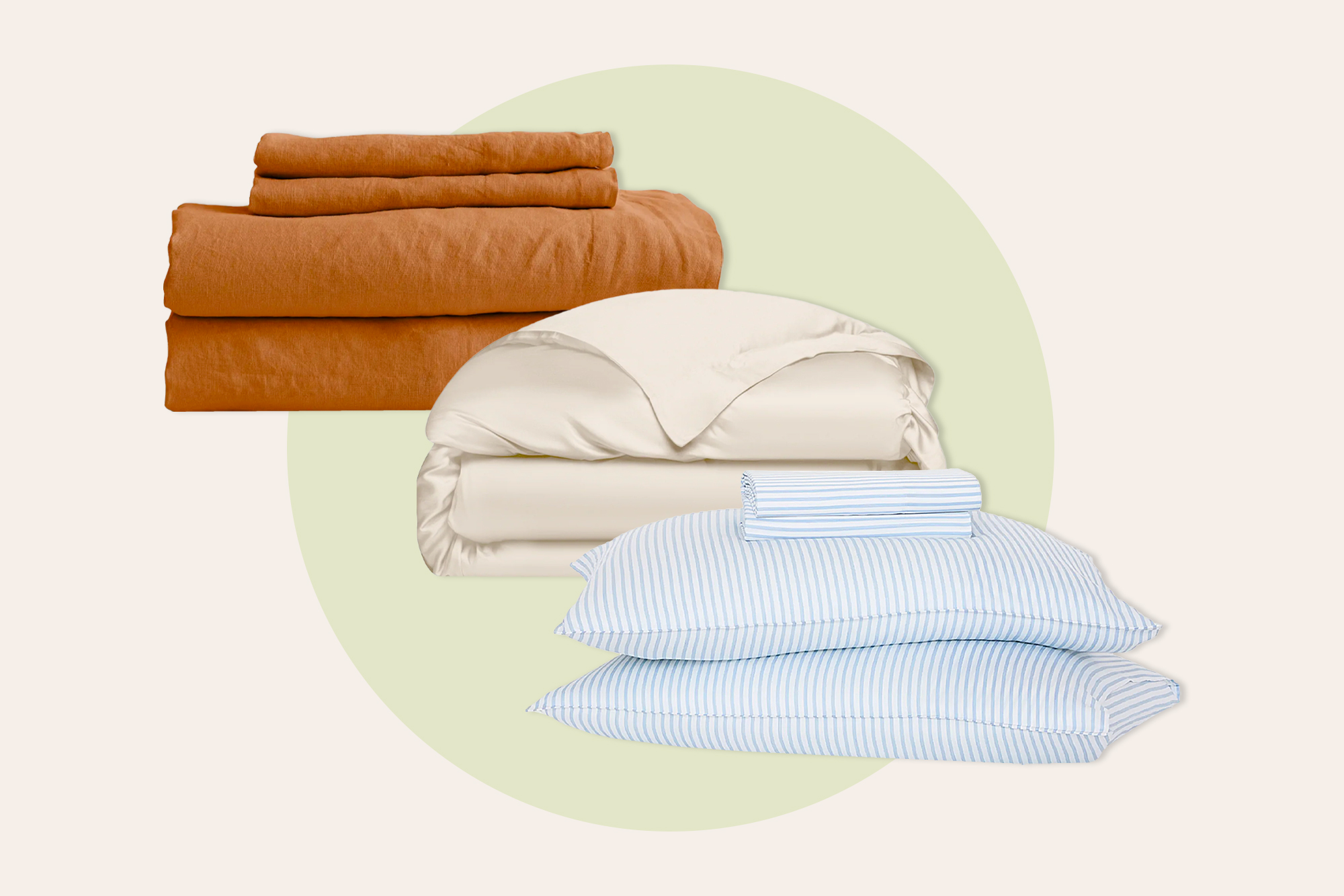We independently evaluate all recommended products and services. If you click on links we provide, we may receive compensation.
Those with sensitive skin know: Irritation can strike at any moment, and from there, it’s a retrace-your-steps guessing game as to what caused it in the first place. But one thing you can do to protect yourself is get sensitive skin-friendly bedding. We spend a lot of time under the covers, so it’s important that our sheets are clean and comfortable, and that they don’t exacerbate any existing issues.
If you want to make sure you’re doing all you can at home to prevent skin reactions, we have you covered in terms of what fabrics to look for, how often to wash your bedding, and what types of ingredients to avoid in cleaning products. We tapped Dr. Jody Alpert Levine, dermatologist and director of dermatology at Plastic Surgery & Dermatology of NYC, PLLC, to find out more.

What Fabric To Look For
Just like there are natural and organic foods, there are natural and organic fabrics. Those who deal with sensitive skin should always opt for sheets that are made from “natural fibers, such as cotton or linen,” Dr. Levine says. “These are usually hypoallergenic, and void of harmful chemicals, making them less likely to irritate the skin.” Silk and bamboo are other sensitive skin favorites.
When you’re shopping for sheets, check the product description to find out what they’re made of so you can look for those natural fibers. There’s also a label you can look for to verify that the fabric is not made from potentially harmful substances called Oeko-Tex Standard 100. This seal of approval indicates the material in the product you’re shopping was tested against a list of more than 1,000 potentially irritating substances.

Washing Your Sheets With Sensitive Skin
In general, it’s recommended that you wash your sheets every one to two weeks, but according to Dr. Levine, the frequency of washing should increase if you have sensitive skin. “I recommend that you wash your sheets at least once a week to prevent the buildup of dead skin cells, allergens (such as dust), and sweat, all of which can irritate your skin,” she says, adding that some people even prefer to wash them every few days.
Find a wash schedule that works for you. If you notice a full week between washes is too long, you might want to wash your sheets twice a week. But if your skin can withstand a week, pushing to two might be more suitable for your lifestyle.

Use Sensitive Skin-Friendly Detergent
Dr. Levine says the main thing to remember when choosing a detergent is the ingredients list. Those with sensitive skin should “steer clear of fragrances, dyes, [and] harsh chemicals such as sulfates or chlorine, which can strip the skin of its natural oils and cause irritation,” she explains.
You might even consider a detergent with plant-based ingredients, “which can be gentler on the skin,” she says. Just be aware of “green label washing.” Sometimes a popular product will put a green plant or leaf on their label and label it “clean,” even though it’s still packed with harsh irritants and fragrances. Be sure to check the fine print. Ingredients such as sodium bicarbonate (baking soda) and sodium carbonate (washing soda) are generally considered safe for all kinds of skin conditions and often pop up in natural detergents.

Shop sensitive skin-friendly bedding:
This article is for general informational purposes only.
Affiliate Disclaimer Medical Disclaimer
















 Unique Beauty is free for all users.
Unique Beauty is free for all users.